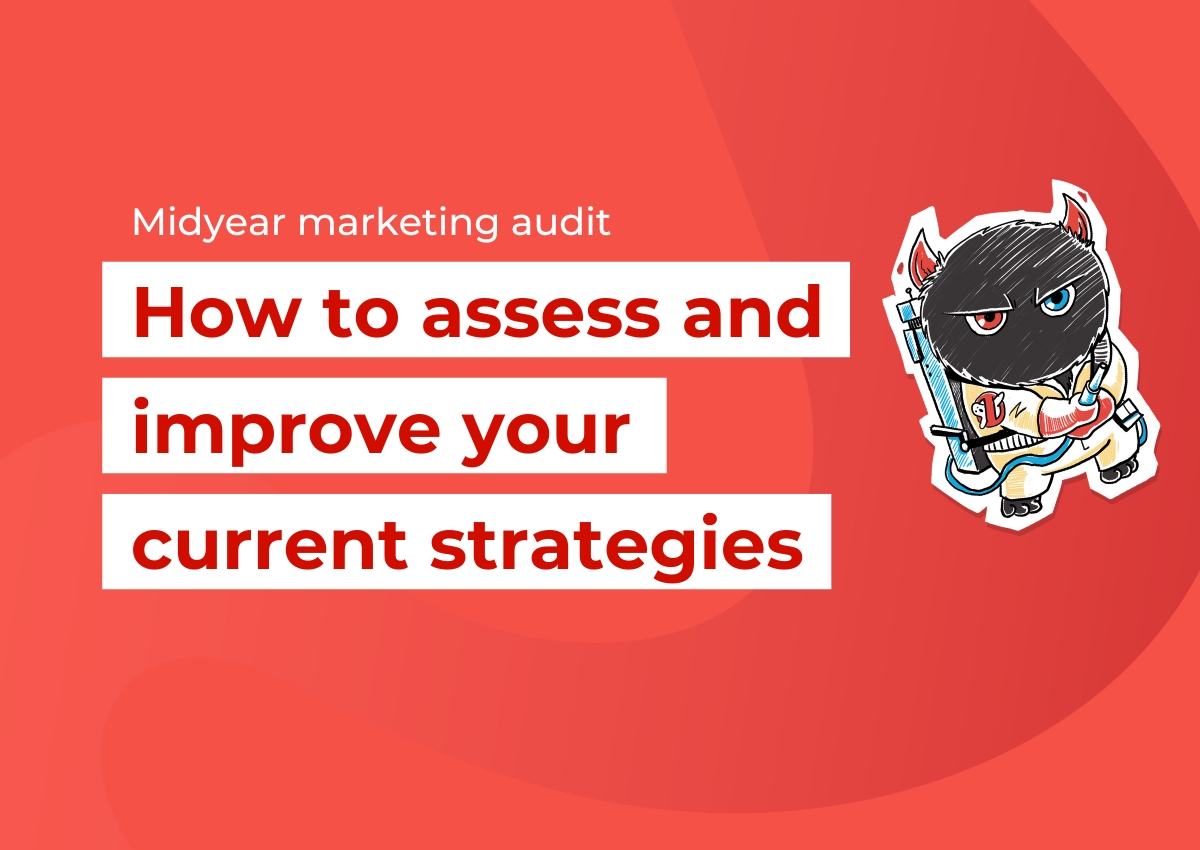Midyear marketing audit: How to assess and improve your current strategies
 https://www.omahamediagroup.com/images/uploads/monster_gallery/Omaha-Media-Group-Black.jpg
https://www.omahamediagroup.com/images/uploads/monster_gallery/Omaha-Media-Group-Black.jpg

As we hit the midway point of the year, it's the perfect time for business owners, marketers and startup founders to conduct a midyear marketing audit.
This process allows you to take a step back, evaluate the effectiveness of your current strategies and make necessary adjustments to ensure you meet your year-end goals.
At Denver Media Group, we believe in the power of a thorough midyear audit to keep your marketing efforts on track and optimized for success. That is why our Denver marketing consulting team is here to share what a marketing audit is and how to conduct one.
What is a midyear marketing audit?
A marketing audit is a thorough analysis of a company's marketing strategies, goals and activities. It identifies strengths, weaknesses, opportunities and threats to assess effectiveness and align with business objectives. This process reviews key metrics, marketing channels, content strategies and budget use. Regular marketing audits help businesses adapt to market changes, improve marketing efforts and enhance overall performance.
Why conduct a midyear marketing audit?
A midyear marketing audit helps you:
-
Identify gaps — Spot areas where your marketing efforts may be falling short.
Adjust tactics — Make data-driven decisions to tweak your strategies.
Optimize budget — Reallocate resources to the most effective channels.
Set new goals — Align your efforts with evolving business objectives.
Step 1: Review your marketing goals
Start by revisiting the goals you set at the beginning of the year. Are they still relevant? Have you met any of these goals already? Determine whether your objectives need to be adjusted based on current market conditions, business priorities or performance metrics.
Step 2: Analyze key performance metrics
Dive into the data to understand how your marketing campaigns have performed so far. Key metrics to consider include:
-
Website traffic — Analyze overall traffic, sources and user behavior.
SEO performance — Review keyword rankings, organic search traffic and backlinks.
Social media engagement — Look at likes, shares, comments and follower growth.
Email marketing — Evaluate open rates, click-through rates and conversion rates.
PPC campaigns — Assess impressions, clicks, cost-per-click and ROI.
Using tools like Google Analytics, SEMrush and social media insights can provide you with a comprehensive view of your performance.
Step 3: Evaluate your content strategy
Content is at the heart of most marketing efforts. Assess the effectiveness of your content by looking at:
-
Engagement rates — Are your blog posts, videos and social media updates resonating with your audience?
Content gaps — Identify topics or keywords you haven't covered that could attract new audiences.
Quality and consistency — Ensure your content is high-quality and published consistently.
Consider conducting a content audit to see which pieces are performing well and which need improvement.
Step 4: Audit your SEO
SEO is a long-term game, and regular audits are essential. Check for:
-
Keyword performance — Are your target keywords still relevant and ranking well?
On-page SEO — Ensure your pages are optimized with proper meta tags, headers and keyword usage.
Technical SEO — Look for issues like broken links, slow page speeds and mobile-friendliness.
Backlink profile — Analyze the quality and quantity of your backlinks.
Step 5: Assess social media strategy
Social media trends change rapidly. Review your social media performance by:
-
Analyzing engagement — Which platforms are driving the most engagement and traffic?
Content effectiveness — What types of posts (videos, images, stories) are performing best?
Follower growth — Are you gaining or losing followers? Identify patterns and reasons.
Step 6: Optimize your paid campaigns
If you’re running PPC or social media ads, assess their effectiveness by:
-
Reviewing ad spend — Are you staying within budget and getting a good ROI?
Analyzing ad performance — Which ads are performing best in terms of clicks and conversions?
A/B testing results — Implement insights from A/B tests to refine your campaigns.
Step 7: Realign your budget
Based on your audit findings, our Denver marketing consulting company suggests adjusting your budget allocations. Invest more in high-performing channels and strategies, and reconsider or tweak those that aren't delivering expected results.
Step 8: Set new goals and KPIs
With fresh insights and data, set new goals for the remainder of the year. Define clear KPIs to measure success and ensure your team is aligned with these updated objectives.
Reach your business goals with the best Denver marketing consulting firm!
A midyear marketing audit is a crucial step to ensure your strategies are effective and aligned with your business goals. By thoroughly evaluating your performance and making data-driven adjustments, you can optimize your marketing efforts for the rest of the year. At Denver Media Group, we're here to support you with expert insights and innovative strategies to help your business thrive. Contact us today to learn how we can assist you in conducting a comprehensive midyear marketing audit.
Posted In: Social Media and Digital Marketing




















